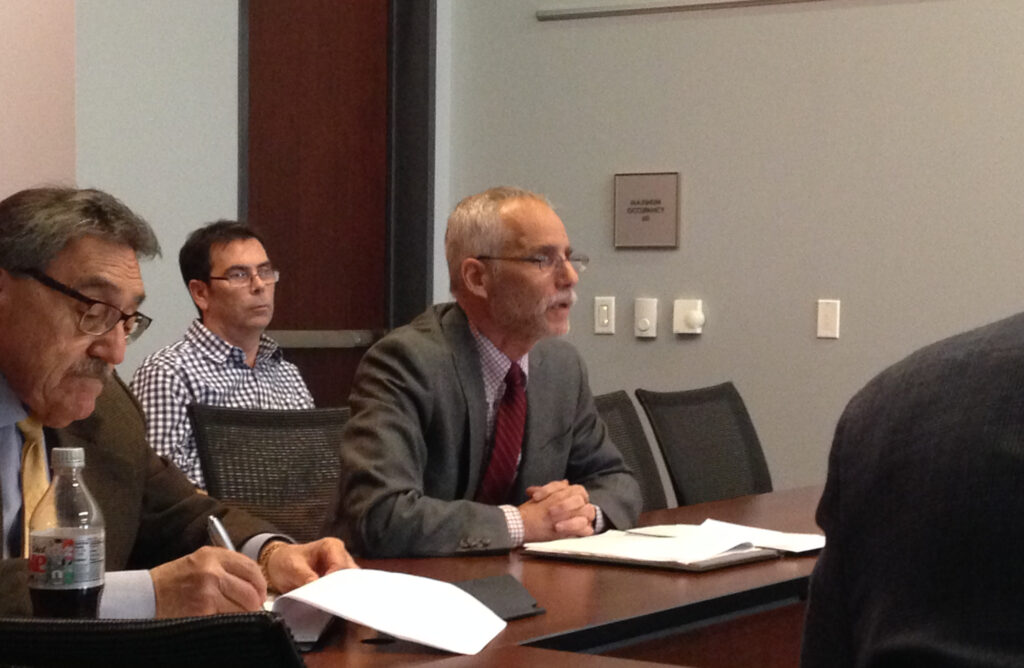By Jeffrey A. Roberts
CFOIC Executive Director
Two years ago, as part of his “Shrouded Justice” series, The Denver Post’s David Migoya revealed that dozens of lawsuits filed against Colorado lawyers had been hidden from the public, “keeping secret the details of any alleged misconduct and misdeeds.”
His story also pointed out that investigations conducted by the Office of Attorney Regulation Counsel, the judicial branch agency that oversees the lawyer disciplinary process, are confidential.
Now, a former senior assistant attorney general for Colorado is making a case for a more transparent state system of regulating the legal profession. Comments submitted by Paul Chessin this month to the Colorado Supreme Court call for public disclosure to be “the rule, not the exception.”

‘It is axiomatic that without transparency, there can be no accountability,” Chessin wrote. “Accordingly, the general rule should be that all attorney disciplinary matters, regardless of the matter’s phase or disposition, and all records of those matters should be public. Only if a compelling need for secrecy exists should a particular matter or record of that matter be non-public.”
The Colorado Rules of Civil Procedure generally make the regulation counsel’s records available to the public only after a committee has determined there is reasonable cause to believe grounds for discipline exist and the regulation counsel files a formal complaint. “This means requests for investigation that are dismissed or result in an alternative to discipline are not made public by the office,” says the regulation counsel’s website.
New rules being considered by the state Supreme Court would retain this confidentiality while providing for some exceptions that let the agency reveal the existence and status of some investigations.
The proposed rule “seeks to strike a balance between protecting lawyers against publicity predicated upon unfounded accusations and protecting clients, prospective clients, and the effective administration of justice from harm caused by lawyers who do not fulfill their professional obligations,” according to comments accompanying the rule under consideration. The rule “also recognizes that restrictions on confidentiality no longer serve a purpose when allegations that ordinarily would be confidential have become generally known through publicity, disclosure in the public record, or otherwise.”
Chessin, who has in the past pushed for greater public access to court records, proposes a much more open process. The proposed rule, he wrote, “harkens back to a time when lawyers were more interested in protecting their reputations than in protecting the public … This anachronistic paradigm must yield to modern demands for transparency and accountability.”
Instead, Chessin contends, the general rule “should be that the files and records of all attorney discipline matters, from intake to ultimate disposition, should be open to the public.” The records, he wrote, could be made subject to the Colorado Open Records Act (CORA) or a rule like the one governing access to court files, which permits sealing only “upon a finding that the harm to the privacy of a person in interest outweighs the public interest.”
The public has a right to know whether the legal profession is effectively policing itself, Chessin wrote, but under the current and proposed rules most attorney discipline matters are secret. According to the agency’s website, more than 90 percent of complaints received by the Office of Attorney Regulation Counsel are either dismissed or resolved through a diversion agreement.
“The public will never know Regulation Counsel’s reasons for dismissing these thousands of requests (and the hundreds more it dismisses after investigation),” Chessin wrote. He noted that disciplinary proceedings of other professions and occupations are subject to CORA, absent exceptions in state law.
“There is no compelling reason why the legal profession’s disciplinary matters should be entitled to special secrecy privileges to which those of other professions and occupations are not. Further, giving ourselves these special secrecy privileges can only elevate the public’s suspicions that, rather than looking out for the public’s interest, we are looking out for our own.”
An effort by Chessin to compel the Office of Attorney Regulation Counsel to fully investigate allegations of attorney misconduct is the topic of a recent Colorado Supreme Court opinion. Chessin was involved in an investigation of an internet payday lending enterprise and “came to believe that opposing counsel committed various violations of the Colorado Rules of Professional Conduct,” according to the opinion.
But the justices held that a district court lacks subject matter jurisdiction to review decisions made by the attorney regulation counsel.
Follow the Colorado Freedom of Information Coalition on Twitter @CoFOIC. Like CFOIC’s Facebook page. Do you appreciate the information and resources provided by CFOIC? Please consider making a tax-deductible donation.




